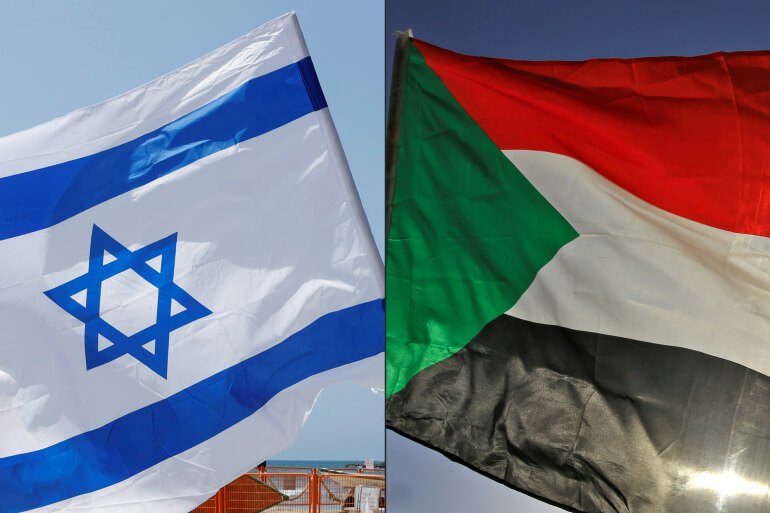On Tuesday, Sudan’s cabinet voted to abolish a 1958 law forbidding ties with Israel. The move could pave the way for increased engagement between the two nations, who already agreed to normalise relations in January. However, in order to come into effect, the cabinet’s decision will now need the approval of a joint meeting of Sudan’s Sovereign Council and Cabinet, which together form the country’s legislative body.
The legislation, which forbade establishing business and diplomatic ties with Israel, was repealed after 63 years and the move has been welcomed by Israeli officials. Israel’s Intelligence Minister Eli Cohen called it an “important and necessary step” and said that “cooperation between the countries will help Israel and Sudan and contribute to regional security and stability.”
Apart from the ’58 law, Sudan was also the venue for the infamous Khartoum Resolution of 1967, also known as the “three nos” resolution, which called for “no peace with Israel, no recognition of Israel, no negotiations with Israel.” It was adopted during the 1967 Arab League Summit, in the wake of the Arab defeat by Israel in the Six-Day War. While both sides have since agreed to establish formal ties, they are yet to sign an official document confirming the deal. On the other hand, the United Arab Emirates (UAE), Bahrain, and Morocco have officially inked agreements establishing full formal diplomatic relations with the Jewish State as part of the Abraham Accords.
The accords, introduced by former United States (US) President Donald Trump, aim to establish lasting peace between Israel and its neighbours by pursuing a vision of “peace, security, and prosperity in the Middle East and around the world.” They have ushered in an era of cooperation between Israel and its Arab neighbours. Prior to the introduction of the peace deal, only Egypt and Jordan had formal relations with Israel.
On Tuesday, Abu Dhabi’s Etihad launched its first-ever direct passenger flight from UAE’s capital to Tel Aviv, establishing direct commercial air links between the two sides. Israel also held a cultural event on Sunday which saw participants from Morocco and Israeli Foreign Minister Gabi Ashkenazi tweeted that Israel considered Morocco “our new partner for the path to peace.” Last week, Bahrain appointed its first ambassador to its official mission in Israel and last month also abstained from a United Nations Human Rights Council (UNHRC) vote calling for an arms embargo against Israel.
Despite these developments, the agreements have also incited popular discontent throughout the Middle East, with protests taking place in all four countries that established diplomatic ties with Israel, and many calling the so-called “deal of the century” a betrayal of the Palestinian cause. Palestinians fear that the deal could embolden Israel to continue its illegal occupation of Palestinian territories.
Sudan’s Cabinet Votes to Abolish 1958 Law Forbidding Ties With Israel
However, in order to come into effect, the vote will need the approval of a joint meeting of Sudan’s Sovereign Council and Cabinet.
April 7, 2021

SOURCE: AFP
